<< Read all John Kamm Remembers stories
Listen to our latest Encounters with China podcast episode where John Kamm discusses these expert exchanges. Or, download this story as a PDF)
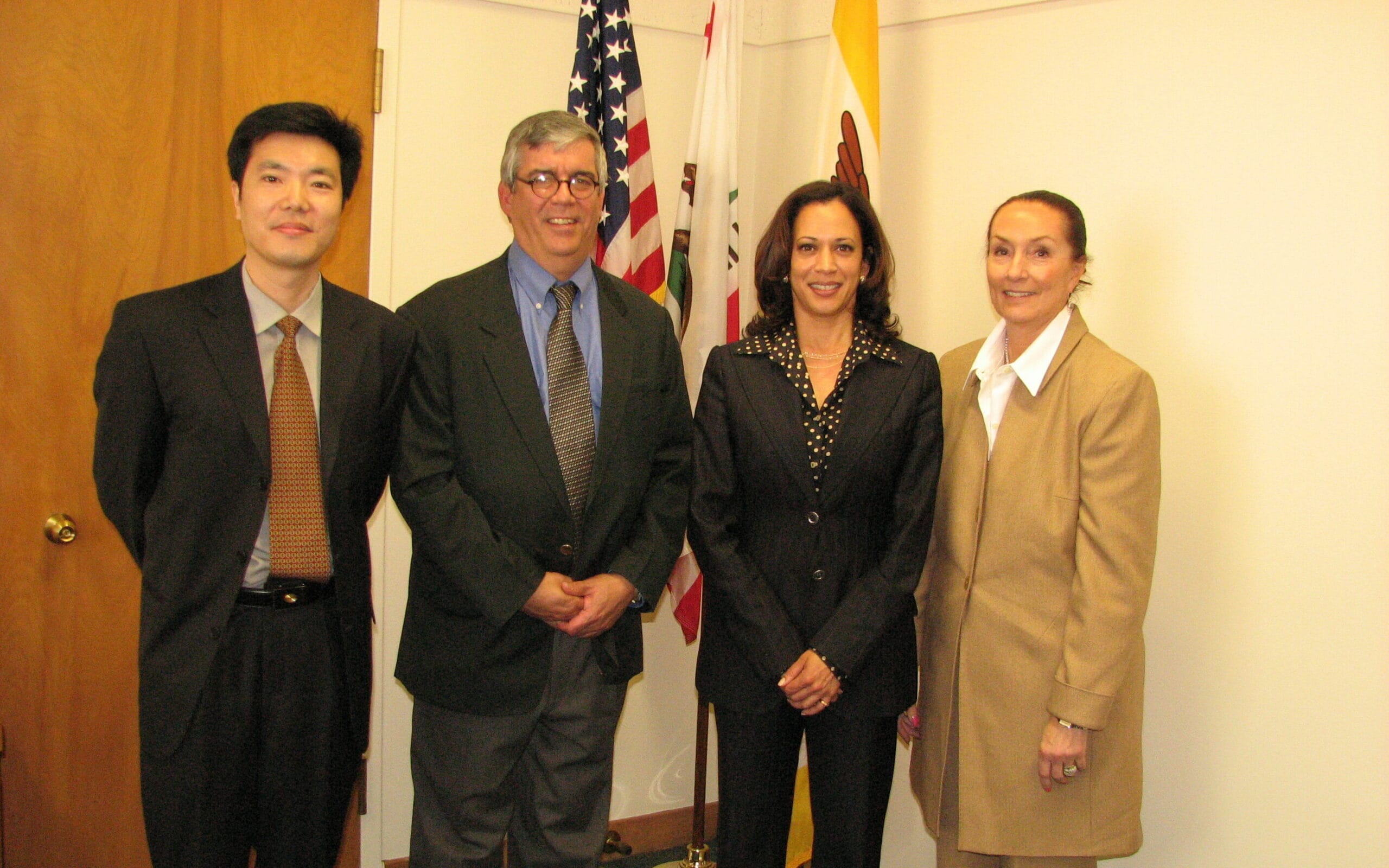
I
n March 2007, Dui Hua hosted Mr. Dan Wei, a senior Chinese prosecutor and legal scholar with close ties to China’s judiciary. The visit to the San Francisco Bay Area lasted eight days.
It was an event-filled eight days. Together we went to the University of California Berkeley, Hastings School of Law, and Stanford University, where the prosecutor gave lectures and spoke with law students and professors. We also attended trials and pre-trial hearings in San Francisco and San Mateo counties, dined at a prisoner-rehabilitation restaurant, held meetings with local law enforcement officials, judges and prosecutors, visited San Quentin Prison and jails in San Francisco and San Mateo, and met with San Francisco District Attorney (now Vice President of the United States) Kamala Harris.
On March 16, 2007, we attended a hearing in juvenile court presided over by Judge Lillian Sing, the first Chinese American woman to serve as a judge in Northern California. At the end of the hearing, Dan took me aside: “Reforming the juvenile justice system is a key priority of China’s reform of the criminal justice system. This subject is high on the agenda of senior leaders. I suggest you contact your friends at the Supreme People’s Court (SPC) to explore doing joint programs. I will also get in touch with them,” he said.
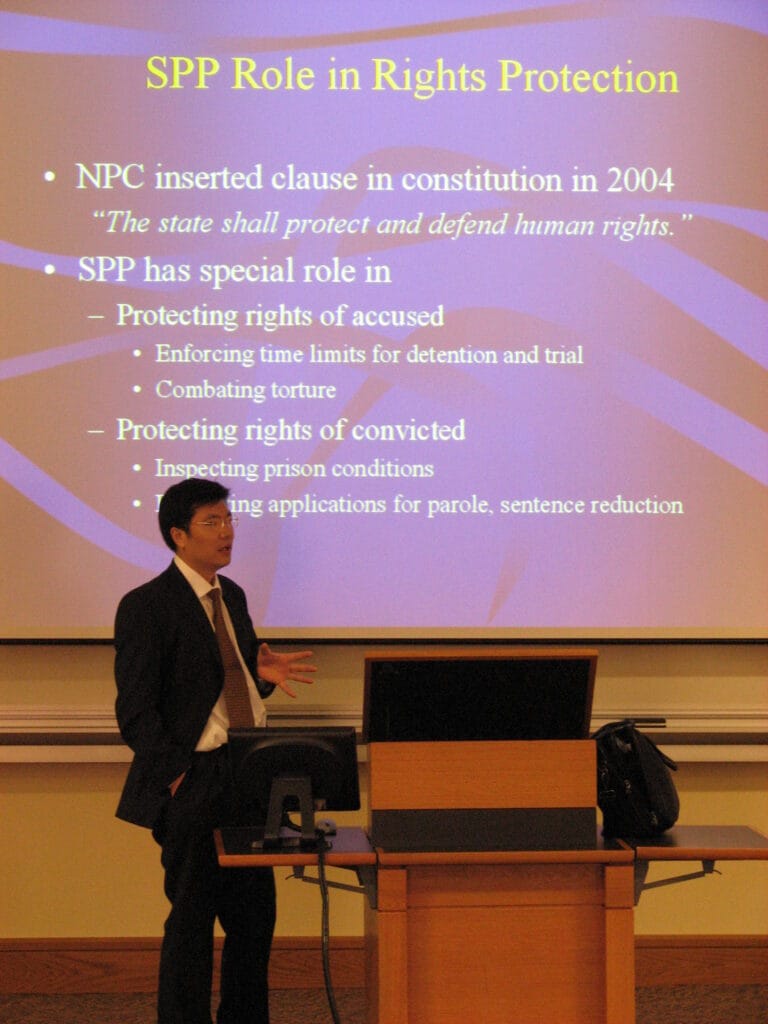
I sent an email to Ms. Yu Xiaoyu, a member of the leadership team of the SPC’s foreign affairs department. She replied, confirming that reform of the juvenile justice system was a priority and promising to follow up with the Research Department, the body in charge of juvenile justice reform.
In August 2007, I was invited to attend a meeting with the MacArthur Foundation in Chicago to discuss possible human rights programs in China. I had been given a MacArthur Fellowship in 2005, and MacArthur was a recognized leader in reforming juvenile justice in the United States. I urged MacArthur senior staff as well as the others in attendance to fund a program in juvenile justice reform in China. It would entail inviting a delegation from the SPC and other judicial authorities to the United States. MacArthur endorsed the idea and we quickly agreed on the terms of the grant.
Having secured funding, Dui Hua began discussions with the SPC Research Department and the SPC International Department to fix the dates, make-up, delegation interests, and itinerary. I also began working with Judge Sing and the MacArthur Foundation on details of the delegation’s tour of juvenile justice facilities. All parties agreed that the delegation would take place in June 2008.
A Late but Promising Start
On May 8, 2008, a devastating earthquake rocked Sichuan Province. Tens of thousands died and there was great loss of property. Travel in and out of China was suspended, as were delegations and programs. Dui Hua and the SPC agreed to reschedule the delegation to October 2008.
The delegation, led by Senior Judge and Deputy-Director General of the Research Department Hu Weixin, arrived in Chicago, the delegation’s first stop, on October 12, 2008, at 6 PM. The delegation included another senior SPC judge, a senior judge of the Qingdao Intermediate Court in Shandong Province, a judge from the Beijing High Court, a senior official of the Communist Party of China’s Central Institute of Politics and Law, and a division director of the SPC’s International Department.
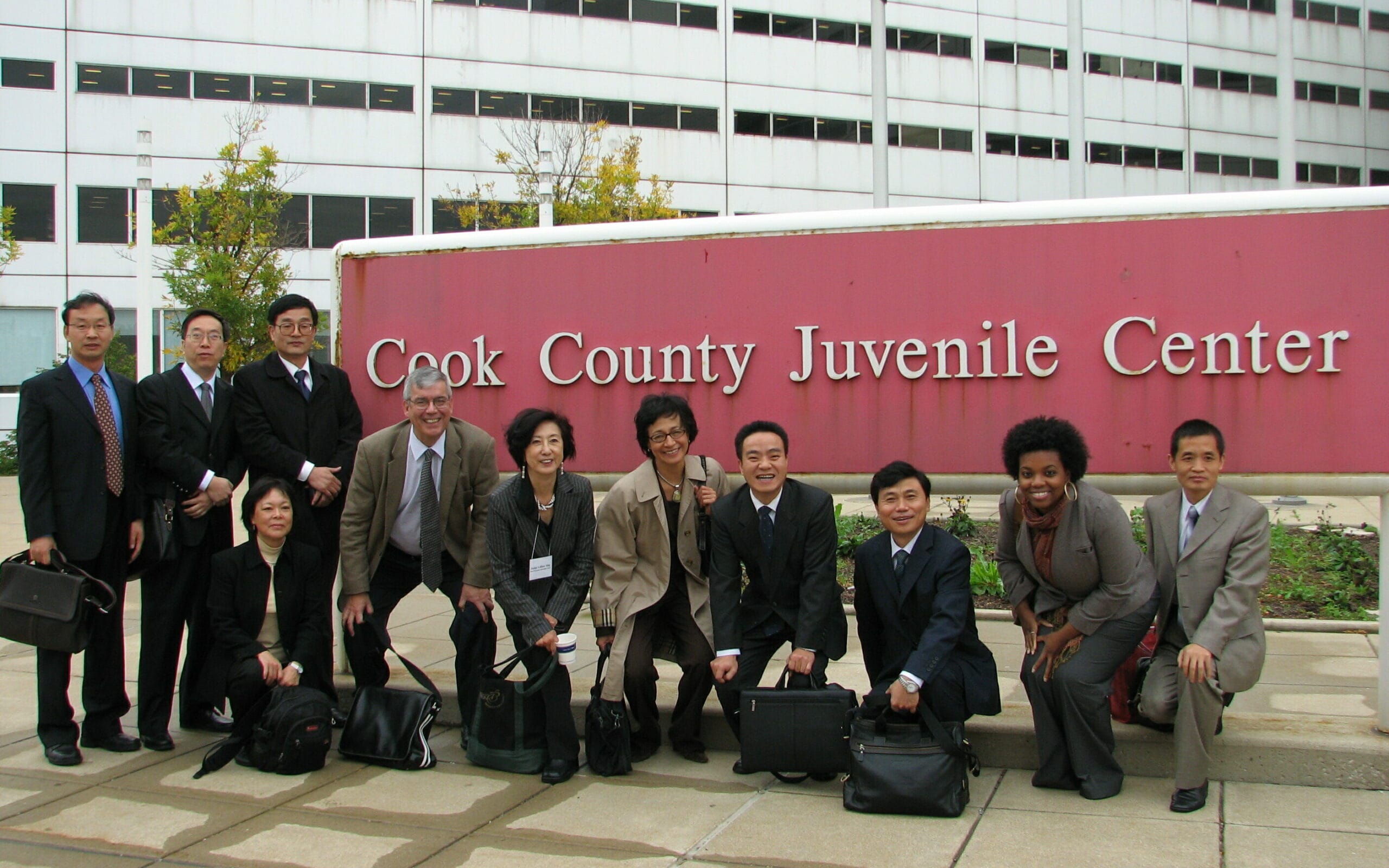
After arrival, the group checked into their hotel. We went looking for a Chinese Restaurant and found one specializing in Shanghai cuisine. As we were about to enter the restaurant, I took Judge Hu aside and asked him “Do you know what kind of work I do?” referring to my efforts on behalf of Chinese political and religious prisoners that began in 1990. “We know about your work, but this will not affect our cooperation,” he replied.
After Chicago we visited juvenile facilities – juvenile courts, places of detention, and other institutions – and held meetings with more than 50 American judges, scholars, police and probation officers, State Department and Justice Department officials (including from the Justice Department’s Office of Juvenile Justice and Delinquency Prevention), district attorneys and juvenile defenders, and community leaders of groups working on juvenile justice. We heard from juvenile detainees. We stopped in Washington DC, Maryland, and the San Francisco Bay Area. The delegation departed San Francisco and returned to China on October 23, 2008.
At each stop, Judge Hu and colleagues gave presentations on China’s juvenile justice situation, its past and current state, and its plans for the future.
A Momentous Encounter with Justice Anthony Kennedy
On October 16, 2008, the delegation, joined by the Chinese Deputy Chief of Mission (now China’s Ambassador to the United States) Xie Feng, Judge Sing and me, met with Justice Anthony Kennedy of the Supreme Court. Justice Kennedy is a towering figure in juvenile justice reform in the United States, having authored the Roper vs. Simmons decision in 2005. In this 5-4 decision, the Court decided that executing a person for crimes committed before the age of 18 is unconstitutional. In the decision, Judge Kennedy reversed his previous support for executing juveniles, and he cited the fact that China had long ago banned executing juveniles. The Chinese judges provided background on how China’s judiciary decided to take this step.
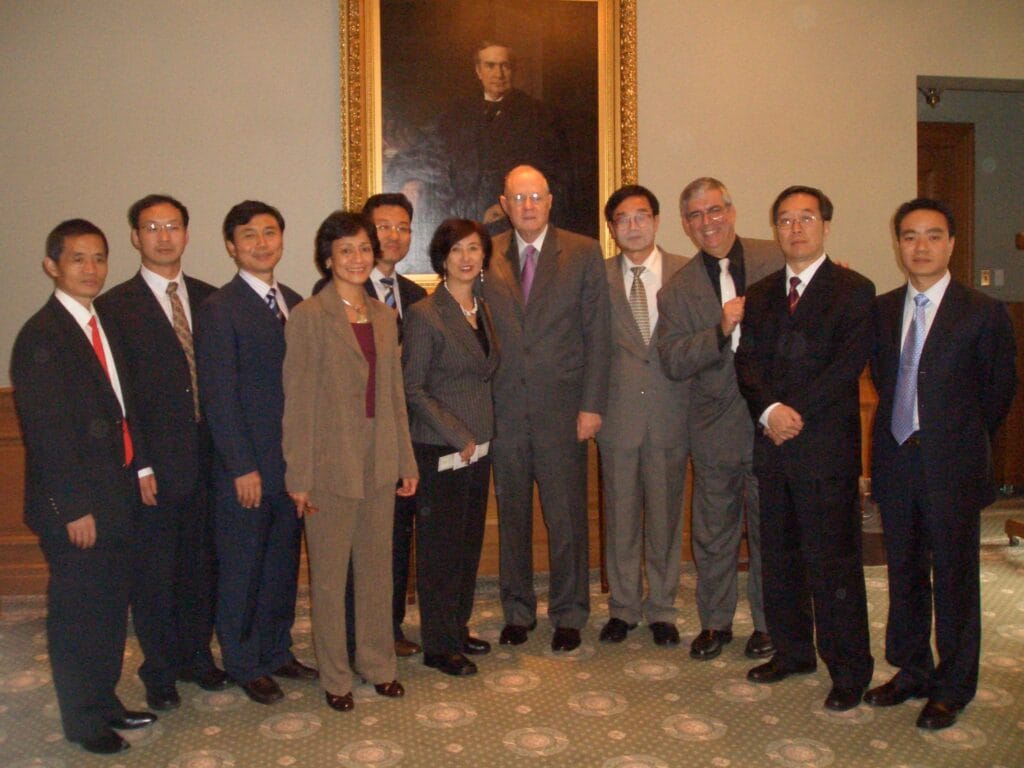
Justice Kennedy had just returned to Washington from a trip to Europe. He was struck at how severe sentences handed down by American courts were compared to sentences passed by courts in western Europe, reflecting a culture of punishment instead of rehabilitation of offenders.
Judge Sing was impressed by Justice Kennedy’s grasp of research that showed that the adolescent brain is very different from the adult brain. These findings underpinned his decision in the Roper vs. Simmons case. The Chinese judges were not surprised by the findings.
Two Sites in Maryland
The day after our meeting with Justice Kennedy, we boarded our bus, packed with lunch boxes, and headed to two locations in Maryland: The Oak Hill Youth Center in Laurel, and the Victor Cullen Center in Sabillasville. Both facilities had been recommended by the MacArthur Foundation.
The Oak Hill Youth Center was, at the time of our visit, a maximum-security detention facility for Washington DC youth convicted of committing serious crimes. Upon arrival we were told that the center could house 60 male youths.
We had a look at the living quarters, the kitchen, the gym, and a new building under construction. We had the opportunity to speak with detainees both before and after the tour.
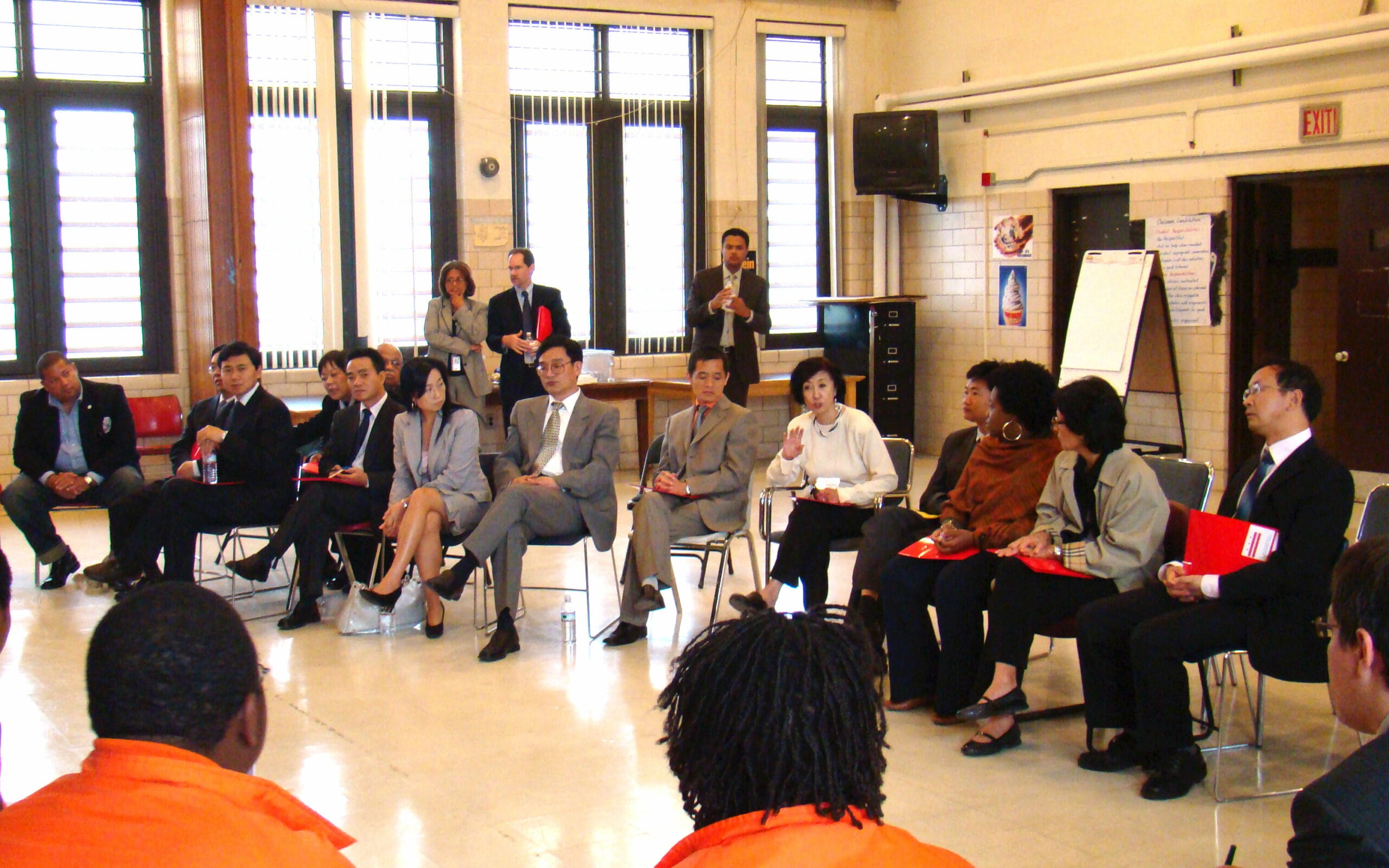
As we got ready to leave, Judge Hu took me aside and offered me a cigarette. “When will we see the detention center for white youth?” he asked. On our walk around the facility, we interacted with youth of color, nearly all of whom were African American.
Housed in a historic building in Sabillasville, the Victor Cullen Center is the headquarters of the Maryland Department of Youth Services. We listened to a presentation on the “Maryland Model” and engaged in a roundtable discussion with state officials, staff of the center, and detainees.
Tough Love: A Meeting of Unlike Minds
A focus of the discussion was recidivism. Maryland was proud to have lowered recidivism among youth detainees to under 50 percent. Our Chinese guests were asked what the recidivism rate for youth offenders was in China.
The Chinese judges were reluctant to answer. After prodding, Judge Zou Chuanning of the Qingdao Intermediate Court replied that, in Shandong, the recidivism rate was “around five percent.” American officials were astonished. They asked how this low rate was achieved. Judge Zou and Judge Hu responded:
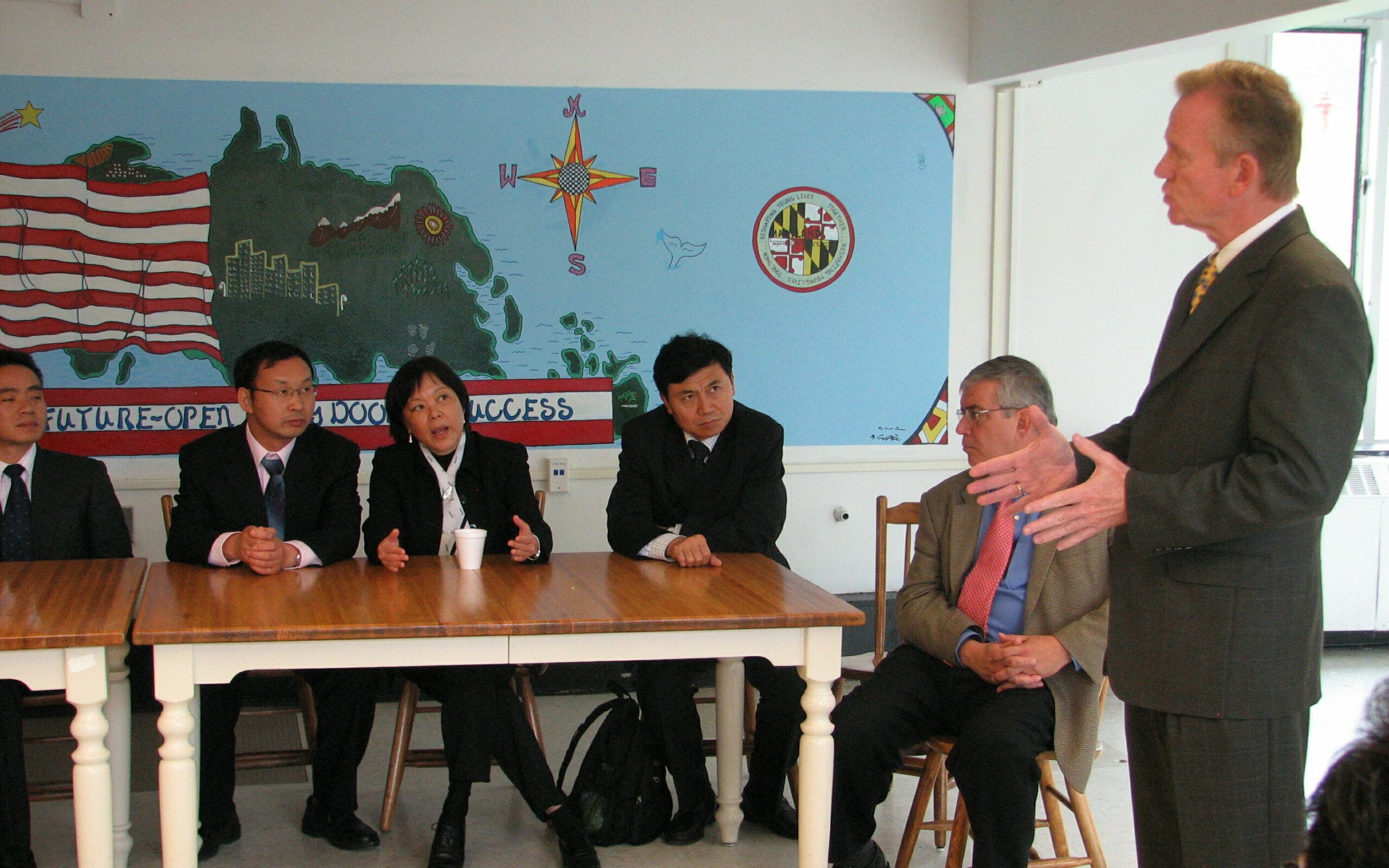
“Time spent in detention is not easy. We make it tough. Youth rise early, have a simple meal and then start marching. They march for a couple of hours after which lunch is served. Youth then attend a lecture on state and party practices and ideology, after which they march for another two hours. They have another meal and then they go to bed. We practice what you call, in America, tough love,” said Judge Zou.
Judge Hu weighed in: “Being sentenced to a detention center or a juvenile prison is a matter of great shame for Chinese families. Upon release, the youth is put under the care of a family member who is preferably a retired soldier or officer of the People’s Liberation Army. This person handles the youth very strictly to make sure he respects the law and policies of the Chinese government and the Communist Party.”
This was not the answer the Americans wanted to hear.
Dialogue is a Two-Way Mirror
The last event of the delegation took place on October 23, 2008, at San Francisco’s historic University Club. Judge Leonard Edwards, a leading authority on juvenile justice in the United States, made a presentation on “Building a Juvenile Justice System.”
Judge Edwards remarked that, in fact, there is not a single, unified juvenile justice system in the United States. Referring to the number of counties in America, he remarked that there are more than 2,800 juvenile justice systems in the country. It is not unusual for a system in one county to be radically different from an adjacent county.
Dialogue is a two-way mirror. One learns about how other countries handle issues related to law and, at the same time, one learns about our own laws and practices as they relate to juveniles under detention. On this visit, American deficiencies in juvenile justice were laid bare: executions of juveniles until 2005, racial disparity in the treatment of youth, and abuse of juveniles. United by a common concern for youths, both parties also had the opportunity to rethink how youth offenders could best be supported.
Finding Common Ground: Juvenile Rights are Human Rights
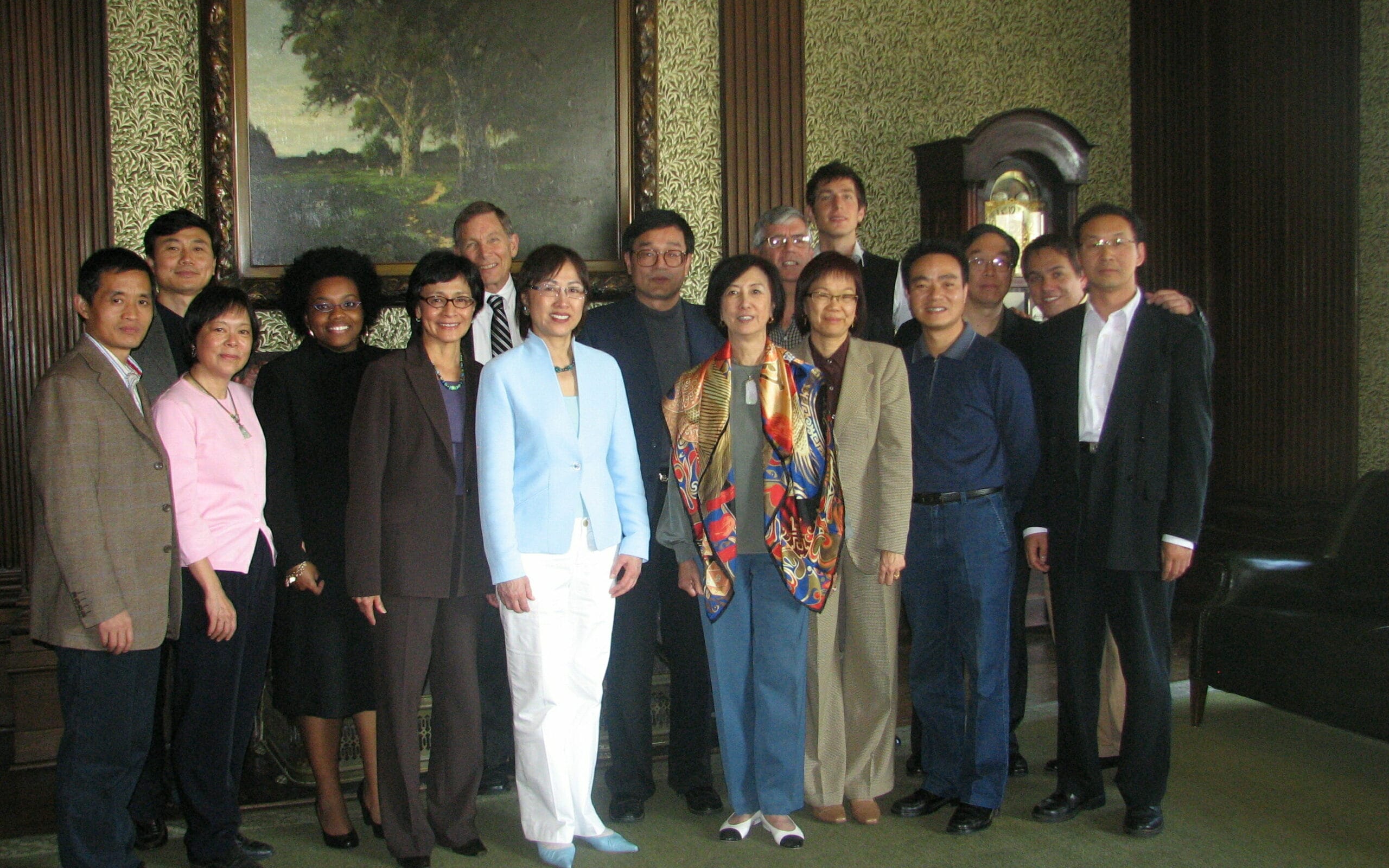
The 2008 juvenile justice program marked the beginning of Dui Hua’s cooperation with the SPC in areas of law that affect juveniles and women in prison, including girls in conflict with the law. In the ensuing 15 years, Dui Hua and the SPC cooperated on eight programs, some in person, others held virtually. Each exchange with the SPC required a great deal of preparation—selecting topics, identifying presenters, resolving a multitude of logistical issues.
Juvenile justice is one of the few areas in the realm of human rights where the two countries can talk with each other rather than talking past each other. Experts from both countries are committed to continuing cooperation in this vitally important area of human rights and engaging in meaningful dialogue. For Dui Hua, our work on juvenile justice facilitated our work on political and religious prisoners, many of whom are juveniles.
Listen to our episode of the Encounters with China podcast to learn more about Dui Hua’s first expert exchange.
Subscribe to receive notifications about new episodes.
Read all John Kamm Remembers stories.
